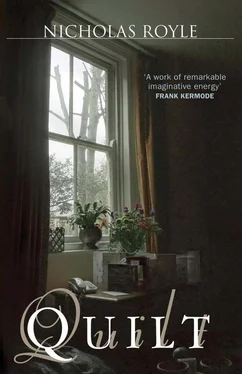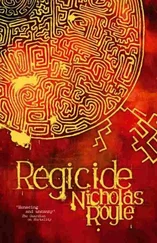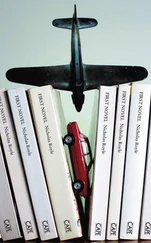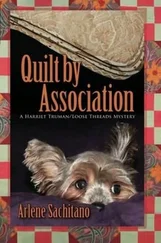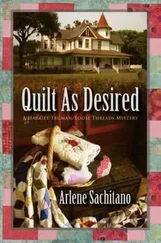Nicholas Royle - Quilt
Здесь есть возможность читать онлайн «Nicholas Royle - Quilt» весь текст электронной книги совершенно бесплатно (целиком полную версию без сокращений). В некоторых случаях можно слушать аудио, скачать через торрент в формате fb2 и присутствует краткое содержание. Год выпуска: 2011, Издательство: Myriad Editions, Жанр: Современная проза, на английском языке. Описание произведения, (предисловие) а так же отзывы посетителей доступны на портале библиотеки ЛибКат.
- Название:Quilt
- Автор:
- Издательство:Myriad Editions
- Жанр:
- Год:2011
- ISBN:нет данных
- Рейтинг книги:4 / 5. Голосов: 1
-
Избранное:Добавить в избранное
- Отзывы:
-
Ваша оценка:
- 80
- 1
- 2
- 3
- 4
- 5
Quilt: краткое содержание, описание и аннотация
Предлагаем к чтению аннотацию, описание, краткое содержание или предисловие (зависит от того, что написал сам автор книги «Quilt»). Если вы не нашли необходимую информацию о книге — напишите в комментариях, мы постараемся отыскать её.
Quilt — читать онлайн бесплатно полную книгу (весь текст) целиком
Ниже представлен текст книги, разбитый по страницам. Система сохранения места последней прочитанной страницы, позволяет с удобством читать онлайн бесплатно книгу «Quilt», без необходимости каждый раз заново искать на чём Вы остановились. Поставьте закладку, и сможете в любой момент перейти на страницу, на которой закончили чтение.
Интервал:
Закладка:

He concludes with a few lines from Blake’s ‘Jerusalem’, read not sung, tacitly countering the more obvious option (favoured by the vicar) of everyone singing it in the service, hearing it regurgitated on the cranky church organ, accompanied by fifty or sixty people who cannot sing to save their lives, when the only rendition he wants to hear is the school carol service no one but he can now recall, with his father so improbably but majestically booming out above all other voices: I will not cease from mental fight, / Nor shall my sword sleep in my hand / Till we have built Jerusalem / In England’s green and pleasant land. And when he takes his seat again, in the pew at the front of the church beside the pristine girl, her body lightly touching him like a prehistoric egg, still warm, she is contemplating the text about the scaffolding, which he showed her just last night, the platter retrieved from one of the cupboards near the back door stuffed with disintegrating early twentieth-century india paper volumes of the Encyclopaedia Britannica .
Excarnation is literature. Its music strips you. Literature is excarnation.
Thinking at death is shared in music. Cut, stripped, loosened, shred, ripped and divided in raving madness. It is waiting everywhere, a word or phrase in a beloved voice, songs, refrains or intonations, symphonies or snatches without identifiable composer or musician, a bar, a melody, permanently interrupted, gone forever, Hubert Parry’s Blake and his father’s ‘Pop Goes the Weasel’, Bach’s second violin concerto caught in a Sunday evening ribbon of reminiscence flowing through his father’s ears, as the church sheds them and they file out towards the spot where his mother’s body was lowered just twenty-eight months earlier.
The couple in green shoes are exhausted. It has been the longest fortnight of their lives.
After the graveside blessing, people are to gather, if they wish, to look at the flowers sent from America, France and elsewhere. Time passes.
These things happen from time to time.
Politely but with an unmistakable hint of impatience, the undertaker asks:
— Would you move on away from the flowers now, sir?
You don’t stand gawking at the flowers on the grave beyond a fixed period. There’s other people would perhaps like to see them, sir, you set an example now, move away and everyone will know to follow, and we can all get on with the business of proceeding out of the churchyard. But for what reason, not only the beauty of the flowers and the afternoon and the breeze and earth and summer sunshine, his father and mother now for the first time together again in name and body consigned?
Already people have begun to vacate the churchyard, however, and he needs to inform them of the reception. Some know already but others have not heard and he wants everyone to understand that they are indeed welcome. Exhaustedly dipping and stepping around gravestones, he tries to pick up on individuals or couples he doesn’t know or hasn’t expected to see at the funeral:
— Hello, I’m not sure we’ve met, please come to the house for a drink.
It is a ten-minute walk up the single-track lane. Parking outside the house being difficult, many go on foot. The churchyard resembles a theatre emptying of spectators. The vicar proffers her blandly earnest thank you but no thank you, and the undertaker also gives his excuses, another funeral to attend, a further nigh-on forty miles to drive that afternoon. Only the gravediggers remain. And the man in grief is struck, as with a spade to head or legs, by the scarcely concealed relief of a gathering never to be reconstituted regarding a departure that has perhaps not begun.
Part Two
The reception is for her a treacherous experience of meeting many people for the first time, trying to keep one name or face apart from the next, as a stranger to the house and yet more affected by it now than anyone perhaps besides the son. She is the pristine remora, paradise-haunter, tip-haulage expert, bleacher and scrubber. She is also, this afternoon, chief tea-maker and sommelier of wine, at least until others offer to assist, while the son is still busied with taxiing folk up from the church and overseeing the arrangement of parking. Some people are too nervous to address a word to her, others dutifully say hello and ask where she comes from and what her plans are. She is staying a couple more days, she explains, then must return to her own country.
With so many strange friends and relations the event is at first, not surprisingly, muted. She pictures a specialist section in a music-store, a selection of soundtracks from funeral receptions from different countries, the English version impressive for the quietness of its opening. Bodies shuffle. Some file through to the kitchen, others contend with the dining room. No one can stand in the centre. Voices operate at little more than whispers, amid clinks of teacups and teaspoons, and a furtive crunching of biscuit. But as the scene progresses, it attains a kind of macabre raucousness, rising to crescendos absurdly at odds with the way it began.
And for him the only thing is to let all the visitors see the pool, hardly difficult as it engulfs almost the entire space of the first room you enter as you come into the house. The surprise on some people’s faces seems diplomatically slight. With others the intake of breath is audible. Of course he misses so much of this initial impact because he is busy with sorting out parking in the drive and taxiing people up the lane, but the sheer size and scale of the equipment alone is evidently a cause for amazement. The aquarium fits into the oak-beamed room with space for a comfortable walkway around, with access to kitchen and drawing room as well as into the stairwell to the upper floor. The table with drinks and food has been set up in the one doorless corner. It is possible to hold a cup and saucer of tea or coffee or a glass of wine close to you and someone else pass without too much inconvenience, but still for at least a handful of guests it must be difficult not to sense that the gangways around the pool are like the space in the earth around a coffin.
— Well I never, just look at the scale of the thing!
— Did you know he was interested in aquaculture?
It’s bigger than the sort of pond children might dream of having in their garden.
— What’s in it anyhow?
— Looks like a couple of big rocks and a load of white gravel.
— Is there something in it?
— He’s taking after his father, wouldn’t you say? His dad always was making things and installing them somewhere or other.
— Like something out of Heath Robinson, to be sure.
— Used to drive his dear old wife round the twist, with that filtering system he set up for the drinking water supply. You’ve seen that, haven’t you? Take a stroll into the kitchen and have a look, it’s still there. Lord knows how many filters and containers he used to purify the water come from a spring in the field above the house.
— Very father like son, wouldn’t you say?
— Only look at the size of it!
— Are there fish in it?
— What’s this all about?
Gradually his own voice takes up a place in the room and attention is more sharply focused on the remarkable tank.
— No, it’s not empty. They are rays, the son explains. There are four of them. They are Potamotrygon motoro freshwater stingrays, from South America.
His aunt is at him, his mother’s youngest sister, accusing him of being mad as a hatter. He is smiling, speaking quietly, but everyone is listening now.
Читать дальшеИнтервал:
Закладка:
Похожие книги на «Quilt»
Представляем Вашему вниманию похожие книги на «Quilt» списком для выбора. Мы отобрали схожую по названию и смыслу литературу в надежде предоставить читателям больше вариантов отыскать новые, интересные, ещё непрочитанные произведения.
Обсуждение, отзывы о книге «Quilt» и просто собственные мнения читателей. Оставьте ваши комментарии, напишите, что Вы думаете о произведении, его смысле или главных героях. Укажите что конкретно понравилось, а что нет, и почему Вы так считаете.
